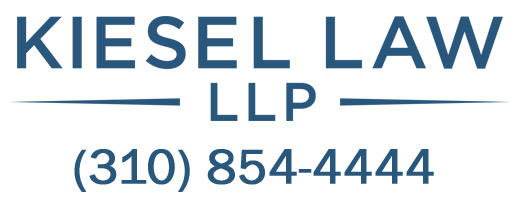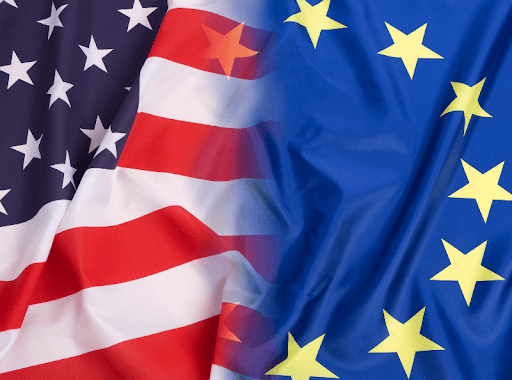How Do US Data Privacy Laws Compare to European Data Privacy Laws?
In an increasingly digital world where personal information is constantly exchanged, stored, and processed, data privacy has become a paramount concern. Governments on both sides of the Atlantic have recognized the importance of safeguarding individuals’ sensitive data and have enacted data privacy laws to regulate its collection, usage, and protection.
That said, for many, it can be a challenge to make heads or tails of the intricacies of data privacy laws in the US and Europe. How do you know if you have been the victim of a data privacy law violation? How can you be sure a class action lawsuit is the best course of action to take?
Here at Kiesel Law, we know how important it is to protect your personal information online. To do that, though, you need to be well-informed about European and US data privacy laws. In the sections below, we’ll break down some of the most important data privacy laws in both the US and Europe.
If you think your data privacy has been breached or compromised, don’t wait; contact Kiesel Law now!

US Data Privacy Laws: Key Legislation
US data privacy laws are primarily sectoral. This means that, instead of having a comprehensive federal framework similar to what exists in the European Union, various federal laws regulate specific industries and aspects of data privacy.
Key US data privacy laws include:
- Health Insurance Portability and Accountability Act (HIPAA): Signed into law by President Clinton in 1996, HIPAA governs the privacy and security of health information, ensuring that healthcare providers, insurers, and their business associates protect individuals’ medical data.
- Gramm-Leach-Bliley Act (GLBA): Signed into law by President Clinton in 1998, the GLBA mandates financial institutions to safeguard consumers’ personal financial information and outlines privacy notices and opt-out provisions.
- Children’s Online Privacy Protection Act (COPPA): Also signed into law in 1998, COPPA focuses on protecting children’s personal information online, requiring websites and online services to obtain parental consent before collecting data from children under the age of 13.
At the state level, California’s Consumer Privacy Act (CCPA) and Virginia’s Consumer Data Protection Act (CDPA) are prominent examples of recent state laws that grant consumers certain rights over their personal data and impose obligations on businesses to protect this data.
With all that in mind, it’s important to note that US data privacy laws differ from state to state. Additionally, the federal data privacy laws outlined above have their own limitations. That’s why, when pursuing legal action in response to data privacy violations, it’s important to have the experienced and knowledgeable attorneys of Kiesel Law by your side.

European Data Privacy Laws: Major Features
In contrast to the fragmented landscape of data privacy laws in the US, the EU has taken a more comprehensive approach to data privacy legislation with the General Data Protection Regulation (GDPR). Enforced in May 2018, the GDPR sets stringent standards for how personal data is processed and grants individuals greater control over their information.
Major features of the GDPR include:
- Data Subject Rights: The GDPR grants individuals rights such as the right to access their data, the right to erasure (or “right to be forgotten”), and the right to data portability.
- Consent: Consent to share user data must be freely given, specific, informed, and unambiguous. Organizations must also make it as easy to withdraw consent as to give it.
- Data Breach Notification: Organizations are required to report data breaches to the relevant supervisory authority within 72 hours of becoming aware of the breach, and in some cases, to affected individuals.
- Extraterritorial Scope: The GDPR applies to organizations outside the EU that process the data of EU residents, ensuring that EU citizens’ data is protected even when processed abroad.
These features help make European data privacy laws broader and more comprehensive than US data privacy laws. In fact, the GDPR’s data privacy laws are widely considered among the most detailed and extensive legislation of this type in the world.
Comparing US and European Data Privacy Laws
While federal US data privacy laws predate the enforcement of the GDPR, the GDPR has had a significant influence on the creation of subsequent US data privacy laws by state. As a result, it is difficult to compare European and US data privacy laws on a one-to-one basis.
Here are some of the major similarities between EU and US data privacy laws:
- Data Subject Rights: Both US and European data privacy laws emphasize individuals’ rights to control their personal information, including the right to access, correct, and erase their data.
- Data Breach Notification: Data privacy legislation on both sides of the Atlantic requires organizations to report data breaches promptly to the relevant authorities and, in some cases, to affected individuals.
- Consumer Transparency: US and European laws emphasize the importance of providing clear privacy notices to individuals regarding data collection, usage, and sharing practices.
Here are some of the major differences between EU and US data privacy laws:
- Scope and Approach: The GDPR’s extraterritorial reach is broader than most US laws, as it applies to any organization processing data of EU residents, regardless of their location. The GDPR also takes a principle-based approach, focusing on the protection of fundamental rights, while US laws are sector-specific.
- Consent: The GDPR places a higher emphasis on obtaining explicit consent from individuals, whereas US laws vary in their requirements for obtaining and withdrawing consent.
- Penalties: GDPR violations can lead to substantial fines, potentially amounting to a percentage of an organization’s global annual turnover. In contrast, US fines are typically capped and may vary based on the specific law violated.
Have You Been the Victim of a Personal Data Law Violation?
Both the US and Europe recognize the significance of data privacy in the modern world, although they approach it differently. The US relies on a patchwork of sector-specific laws, while Europe has adopted the all-encompassing GDPR.
While there are similarities in data breach notification and data subject rights, there are notable differences in the scope, consent requirements, and penalties. This can make it tricky for users to fully understand their rights and protections. It can also make it tricky to pursue legal action in the case of data privacy violations.
Fortunately, the legal experts at Kiesel Law are well-versed in both US and European data privacy laws. Our testimonials speak for themselves; no one is more committed or better equipped to help you ensure justice is served. Contact us today!


